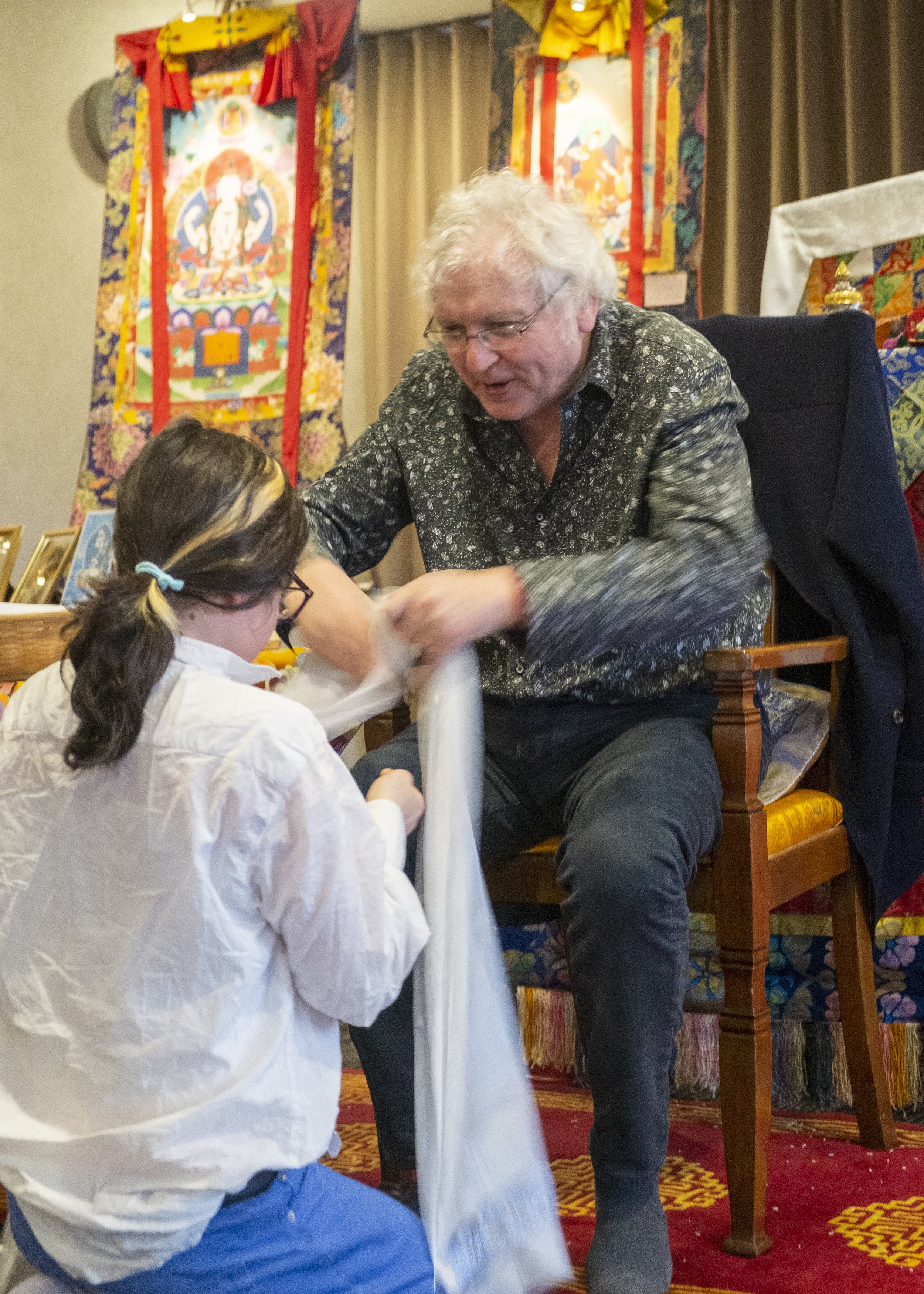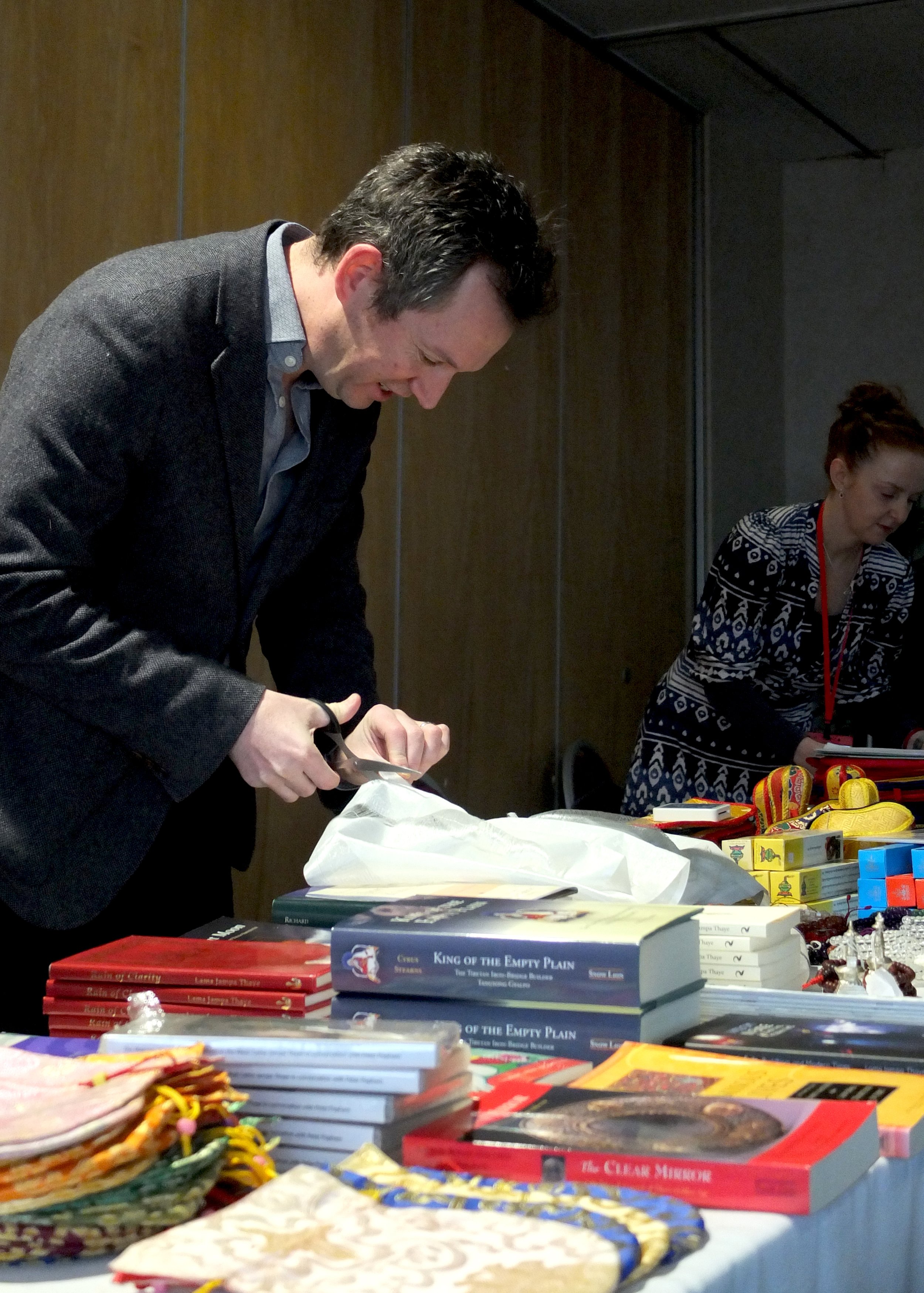On 13 January Lama Jampa Thaye gave his first teachings of 2024 in Bristol, UK. The event was organised and hosted by the Dechen centre there, Sakya Thinley Rinchen Ling.
In the morning, Lama Jampa continued teaching ‘Discriminating the Three Vows’, a work by the great 13th century master, Sakya Pandita. In this chapter, Sakya Pandita clears away confusion about the nature of the vows associated with the vajrayana, the swift vehicle that can lead to the wisdom, compassion and power of buddhahood in this very life. He cautions that whilst the vajrayana has many powerful methods that can transform our ordinary perception of the cycle of birth and death, this transformation needs to have actually taken place for us to be able to put it to the test, as in the examples of the great realised ones (mahasiddhas) of India such as Tilopa, Naropa and Birwapa.
Sakya Pandita also explains in this section some of the differences between the common mahayana – the gradual path to buddhahood – and the vajrayana. Whilst both paths are motivated by the wish to achieve enlightenment for the benefit of all beings, the common mahayana sees enlightenment as something to gradually approach, through gathering merit and wisdom, by practice of the Six Perfections (giving, moral discipline, patience, effort, meditation, wisdom). This path is effective but takes many, many lifetimes; aeons in fact. In contrast, through quickening the seeds of buddhahood in us now, the process of initiation in vajrayana, along with subsequent practice, can bring about enlightenment in this very life.
In the afternoon, Lama Jampa gave the initiation of Chenrezik Mahamudra. In this context, Lama Jampa explained that the term mahamudra should be understood as having a clear picture or view of the true nature of reality, rather than experiencing it directly. This particular initiation was given by Chenrezik himself to the Bengali Mahasiddha Jetari and has since been transmitted in an unbroken line through the Sakya tradition to the present day.




